Cats are wonderful companions that offer us comfort and affection. But if you share your home with a cat, you’ve probably noticed that they have an annoying habit of scratching on walls. Scratching is a healthy, natural behavior for cats, but it can be frustrating when your cat’s claws cause damage to your home. So, why do cats scratch the wall? And what can pet parents do to prevent destructive scratching? Keep on reading to find out!
The Top 5 Reasons Why Cats Scratch Walls
There are several reasons why cats scratch the wall, and when you know what’s behind your furry friend’s behavior it’s much easier to find a solution that works for both of you. In this section of the post, we’ll highlight the top 5 reasons why cats scratch walls.
You are viewing: Why Does My Cat Scratch The Wall
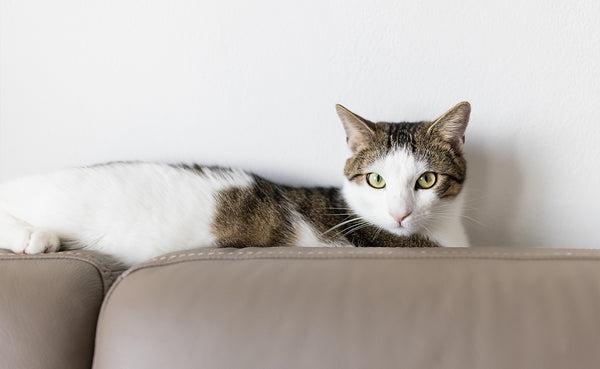
1. It’s an Instinctual Behavior
The first thing to understand about scratching is that it’s an instinctual behavior for cats. This means it’s simply part of their nature as a species. Unlike a human’s nails which protect the tips of our fingers, a cat’s claws extend from the front of their paws. They’re important tools that are used for a variety of purposes, including balance, catching and grasping prey, climbing, self-defense, and scratching.
So, next time you see your cat scratch the wall, know that they’re doing what comes naturally to them. Scratching is a healthy habit, and your cat needs to scratch to stay mentally stimulated and physically fit. Later in the post, we’ll show you how to redirect your cat’s scratching and provide them with an outlet for this natural behavior.
2. It Keeps Their Claws Healthy
Another reason why cats scratch the wall is to keep their claws healthy and ready for action. Scratching helps cats shed the dead outer layer of their claws, leaving them sharp and strong. It also keeps your cat’s claws at an ideal length and helps prevent painful snagging and tearing.When they’re outside in nature, cats will scratch trees or rocks to remove the outer layer of their claws. Inside homes, however, these outlets aren’t available, and your cat may scratch the wall if there’s nothing else they can use to keep their claws in tip-top shape.
3. They’re Marking Their Territory
Scratching walls is also a way for cats to mark their territory. A cat’s paws have glands that release a scent that’s used to mark their turf. When your cat scratches the wall, it’s like leaving behind a signature – marking where they’ve been and who’s in charge!
If you’ve only got one cat, you may be scratching your head wondering why they would want to mark their territory. The simple answer is that cats are territorial animals. They use scratching to tell cats, other animals, and even humans that they’re the king of the castle.
4. As a Response to Stress or Boredom
Cats may also scratch the wall as a response to stress or boredom. The truth is, cats can get stressed out just like humans do – especially if they’re alone all day while you’re at work. If your cat has nothing else to occupy their time, they might turn to scratching the wall as a way of relieving their pent-up energy.
If your cat is scratching the wall in response to stress or boredom, they’ll usually do it more when you’re not around and less when you’re there. If this seems to be the case for your furry friend, make sure to provide plenty of toys to keep them entertained during the day. It’s also important to play with your cat and give them lots of attention when you’re at home!
5. To Communicate With Other Cats
Finally, your cat might scratch the wall to communicate with other cats. This usually happens in multi-cat households when there’s a lot of activity going on. If one cat is getting a lot of attention from a family member, another cat will often go over to the wall and start clawing away!
As we mentioned earlier, scratching is a way for cats to leave their scent and mark their territory. Scratching may also be a visual signal to other cats that’s used to convey emotions such as happiness, excitement, or frustration.
Why Do Cats Scratch After Using the Litter Box?
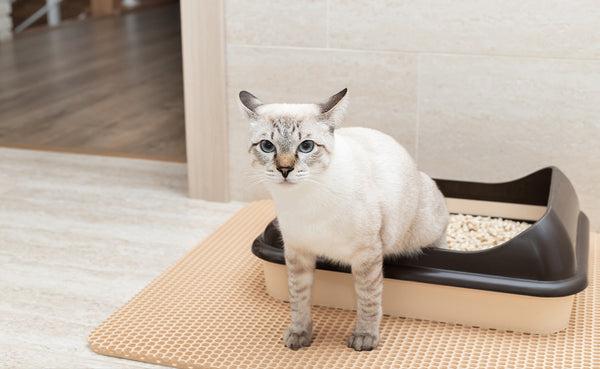
Cats will often scratch after using their litter box to cover up their waste. Covering up poop is a natural behavior that’s rooted in survival instincts. Wild cats will cover their feces with leaves or dirt to camouflage the smell, which makes it difficult for predators to track them down.
Interestingly, dominant cats like lions and tigers will often leave their feces uncovered to mark their territory. This is why in a multi-cat household, you might see one cat covering their waste while another leaves it out in the open. It all depends on the litter box situation – and who’s in charge!
In some cases, cats will scratch the walls, floors, or furniture after using their litter box. If this happens, it’s usually because they’re unhappy with the litter box or the litter itself. One of the most common problems is that the litter box is not big enough. Too much, too little, or the wrong type of litter can also result in a displeased cat.
If your cat is scratching after using their litter box, it could also be a sign that the litter needs changing more often. Cats like their litter box to be clean, and if it isn’t, they may scratch to let you know. Finally, if you live in a multi-cat household, make sure you have plenty of litter boxes. If there are too few, your cats might start scratching to signal their displeasure.
The bottom line is that if your cat starts scratching after using their litter box, you’ll need to do some detective work and figure out exactly why they’re unhappy with the situation before it becomes a major issue.
Why Do Cats Scratch After Eating?
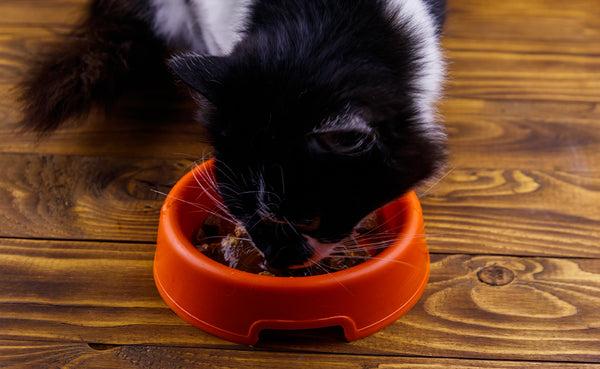
Have you ever noticed your cat scratching around their food bowl or other places in your home immediately after eating? If so, you might be wondering what’s going on. Like other types of scratching, this is an instinctual behavior that comes naturally to our feline friends.
When you think about it, cats are predators – so when they eat their food, they’re consuming their prey! Just like cats will cover up their feces with leaves or dirt to prevent them from being tracked down by other animals, they’ll also attempt to cover up their food.
Experts refer to this as “food caching,” and it’s a natural survival instinct. In the wild, cats will cover uneaten food to mask its smell, before returning to the spot later to finish their meal. This prevents other animals from discovering the food source and taking it for themselves.
Cats will often scratch the walls, floors, or furniture after eating to mimic the behavior of food caching. This instinctual action is just another way for your cat to feel at home and safe in their environment.
Why Do Cats Scratch the Wall at Night?
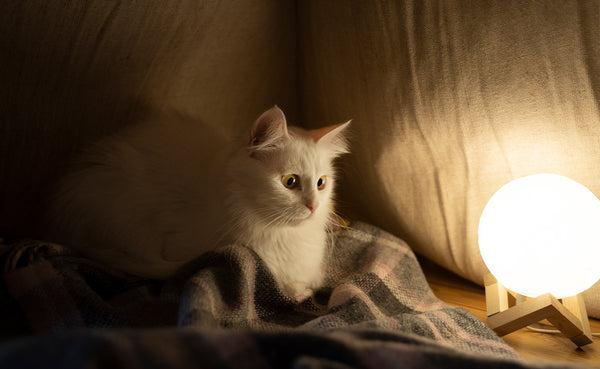
Read more : Why Is Max Mad At Ginny
Waking up to the sound of your cat scratching the walls at night is nobody’s idea of a good time. But before you get too frustrated, it’s important to remember that cats are naturally nocturnal creatures. This means they’re usually more active at night than during the day.
Cats scratch at night for all the same reasons they scratch during the day. Whether they’re marking their territory, communicating with other cats, or scratching to keep their claws healthy, it’s all just part of being a cat!
While nighttime scratching is normal, excessive scratching at night can be a sign of boredom, anxiety, or stress. So, if you’re often woken up by scratching, try giving your cat a little more activity and mental stimulation during the day to help them relax and unwind at night.
How Can I Stop Destructive Scratching?
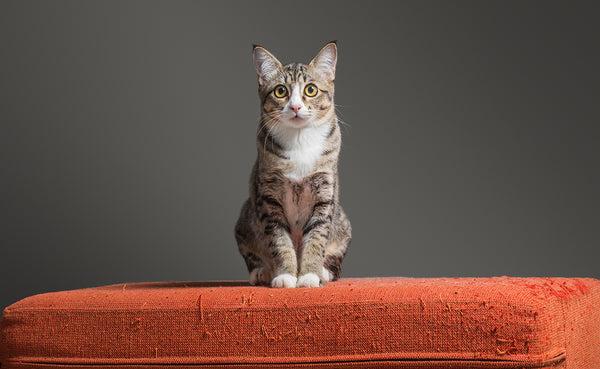
So far in this post, we’ve looked at some of the most common reasons why cats scratch and explained the instinctual drives that govern their behavior. But if your cat is causing damage with their scratching, you’re probably wondering how to get them to stop. The good news is that there are several steps you can take to reduce or prevent destructive scratching. Let’s take a look at some of the most effective strategies.
Keep Your Cat’s Claws Trimmed
Make sure to keep your cat’s claws trimmed to minimize damage when they scratch. This will also help prevent painful snags and tears, which can happen when claws are too long. If you’re not sure how to trim your cat’s nails yourself, ask your vet for assistance the next time you visit. They’ll be happy to show you exactly what needs doing and offer some helpful pointers that will help make the task easier.
Provide Plenty of Physical Exercise and Mental Stimulation
Keeping your cat active and engaged will help release excess energy and curb destructive scratching. Set aside time each day to play with your cat and give them lots of opportunities for climbing and exploring. Toys like wands and teasers are great for encouraging physical activity, while puzzle feeders can help keep your kitty’s brain sharp.
Get a High-Quality Cat Scratching Post
Remember, scratching is a healthy, natural behavior for cats. So, instead of trying to prevent it entirely, focus on encouraging your cat to use a scratching post instead of your walls, floors, or furniture. Redirecting your cat’s scratching in this way is the best solution for preventing damage to your home.
When choosing a scratching post, it’s important to keep a few things in mind. First, make sure it’s made from tough materials that will withstand your cat’s claws. Scratching posts made from wood and sisal are a great choice, as they’re durable and offer good resistance for scratching.
Second, choose a scratching post that’s sturdy and stable so it supports your cat’s weight without wobbling or tipping over. Wall mounted scratching posts are an especially good choice as they have excellent stability. Also, cat wall furniture take up minimal floor space. If your cat has a habit of scratching the wall, a vertical wall-mounted scratching post will suit their scratching style.
Finally, make sure the scratching post you choose is tall enough for your cat to stretch to their full height while standing on their hind legs. This way, they’ll be able to get a good scratch without having to bend at the waist or strain their back.
Wrapping Up
Scratching is a perfectly normal behavior for cats that keeps them happy and healthy. Now you understand why your cat scratches, you can take steps to redirect their behavior and prevent unnecessary damage to your home.
Looking for a high-quality scratching post made from durable, natural materials? Check out our Wall Mounted Scratching Post. It’s the perfect vertical scratching surface for cats of all sizes, and we’re confident your feline friend will love it!
Source: https://t-tees.com
Category: WHY
